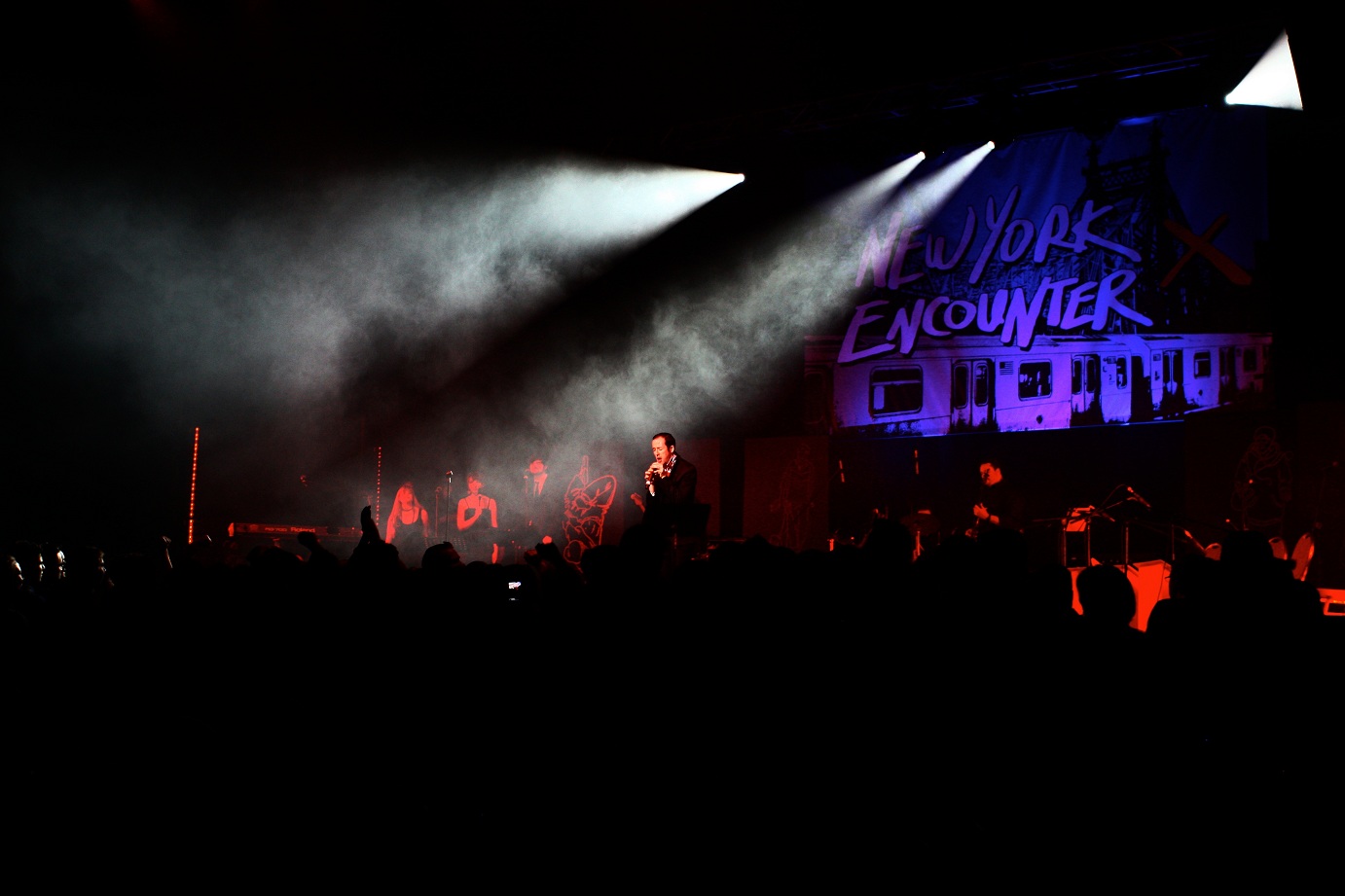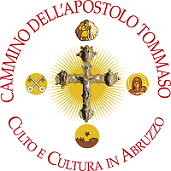“A Choir is the Place Where the ‘I’ and the People Meet” (Fr. L. Giussani)
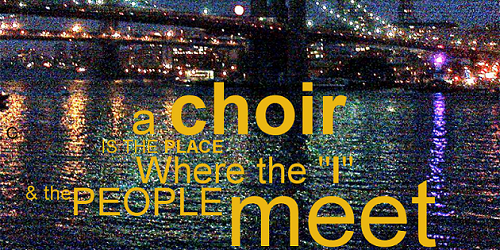 To see full poster, click the image aboveAn evening of traditional and folk songs performed by choirs from Italy, Peru, the Philippines, Poland, and the Ukraine. Paid admission, open seating. Tickets are $20 and are available online and at the door.
To see full poster, click the image aboveAn evening of traditional and folk songs performed by choirs from Italy, Peru, the Philippines, Poland, and the Ukraine. Paid admission, open seating. Tickets are $20 and are available online and at the door.
- Purchase ticket online:
- Cost: $20 per ticket
- Open seating
- Purchase receipt necessary to pick up tickets
- All tickets have to be picked up at the ticket window, starting from Friday, Jan. 17 at 6:30pm through Saturday, Jan. 18 at 8:30pm (half hour before the performance starts). Please bring your receipt with you.
How to Buy your Tickets
- By check issued and mailed to New York Encounter, 600 Third Avenue, Second Floor, Room 208, New York, NY 10016. Please specify "For Choir Ticket." A receipt will be sent by e-mail (please be sure to provide your e-mail).
- At the door from the evening of Friday, Jan. 17th, through Saturday, Jan. 18th, at 8:15pm
“No expression of human sentiment is greater than music. Who would not be moved by a string concert? How can you remain untouched by the colors of a piano sonata? It seems the top of the top. And yet […] when I listen to the human voice […] I do not know if it happens to you too, but the human voice is even better than music, and you cannot go beyond that. Yes, singing is the highest expression of the human heart and there is no higher service to the human community than singing.
Choral songs are one of the highest expressions of religiosity, the truest witness to the life of a people, because on the one hand they are the experience of an incarnate humanity, and on the other they are the nostalgia for something that is there even if we cannot imagine it.”
(Luigi Giussani, unpublished notes from a dialogue with members of the CL choir)
The Performers
The Capitano Grandi Choir
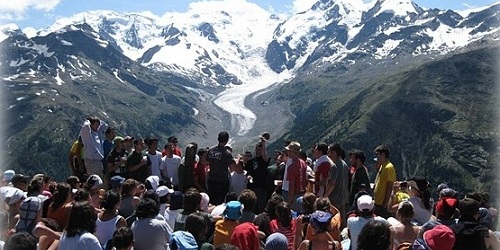 Capitano Grandi Choir
Capitano Grandi Choir
About the Capitano Grandi Choir:
In 1998, a group of students with a passion for the mountains, fascinated by the immediacy and by the human content of some folk songs, started meeting with the aim of singing together. This is the origin of Capitano Grandi Choir that gathers students of the scientific faculties of the Università degli Studi di Milano. They were young people fascinated by the beauty of these songs from the Alpine tradition, so fascinated that they decided to start a work of study and of execution of these folk songs.
The consonance they felt with these songs is the same that even today incites the choir to learn and publicly perform in universities, schools and many other places because, as Eugenio Corti wrote: “It was an experience of others, not of the singers or of the listener, but the way the songs were communicated was such that a nostalgia seemed to materialize in each one present.”
This discovery pushed the choir to perform in public at concerts and cultural events and, finally, on January 8th, 2007, to found the Capitano Grandi Association which aim is to help spreading the beauty of the singing together.
The history is still going on: the meeting in 2008 with Sasso Rosso Choir and the performances for the 150th Anniversary of the Italian Union are only two examples. The choir has also traveled to Barcelona and Lithuania, and every year the Association continues to participate in many school events and other performances.
The Pachamama Peruvian Arts Choir
 Pachamama Peruvian Arts Choir
Pachamama Peruvian Arts Choir
About the Pachamana Peruvian Arts Choir:
Choir, Christmas Carols and Traditional Songs
The country of Peru, rich in history and culture, was and continues to be an inspiration for master composers who dedicate their admiration and love to the creation of vocal music. National and foreign singers alike, pay homage to ancient cultural legends through their interpretations of traditional Peruvian songs. Traditional Peruvian music transports us to memorable places and historical moments. This is a great opportunity for Pachamama Peruvian Arts students to learn more about our culture and traditions. They are given the chance to perform songs that their parents and grandparents sang, which include valses, marineras, tonderos, festejos, huaynos and other rhythms, without leaving aside Andean Christmas carols. At the same time, they learn biographical data about the composers and singers who contributed and still contribute to our national culture and identity.
The San Lorenzo Ruiz Choir
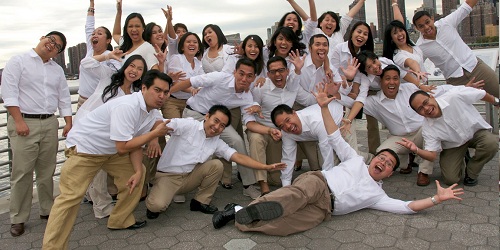 San Lorenzo Ruiz Choir
San Lorenzo Ruiz Choir
About the San Lorenzo Ruiz Choir:
The San Lorenzo Ruiz Choir of New York (SLRC), established on February 18, 2007, is a music ministry brought together by a devotion to San Lorenzo Ruiz de Manila. It is composed of dedicated Filipino volunteer members from various backgrounds. Through music, SLRC aims to help make the Eucharistic celebration a more enriching experience and to spread devotion to the first Filipino saint. The choir renders regular monthly service at the Church of Our Lady of Pompeii in Manhattan and at the Church of Mt. Carmel in Astoria, Queens.
The Angelus Choir
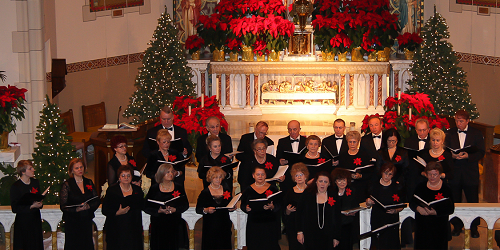 The Angelus Choir
The Angelus Choir
About The Angelus Choir:
The Angelus Choir was founded as a community organization by Antoni and Lunia Chroscielewski in 1998. The membership is open to anyone who is interested in classical vocal music. Since the beginning, the group has been based at the Polish National Home in Greenpoint where the choir holds its weekly rehearsals and where it often performs. Each year the group maintains a busy schedule of performances. In addition to numerous appearances at the community, religious, patriotic, and ethnic events, the Angelus Choir co-sponsored large-format concerts in which it performed with the symphonic orchestra. For example, the concerts at Hunter College and at St. Bartholomew’s Church marked 20th anniversary of the pontificate of John Paul II, 80th anniversary of Poland’s independence, and Poland’s admission to the NATO alliance.
In the past decade, the Angelus Choir has frequently performed in other prestigious places, such as the Consulate General of the Republic of Poland, Saint Patrick’s Cathedral, the Cathedral-Basilica of Saint James, and the National Shrine of Our Lady of Częstochowa in Doylestown, Pennsylvania. The choir was invited to sing for the World Trade Center Responder Day at Saint Paul’s Chapel, and it represented the Polish community at the celebration of the International Year of the Organ where it performed music by Polish composers – Paderewski, Moniuszko and Ogiński. Until 2006, the Angelus Choir was directed by Wojciech Typrowicz who was assisted by Izabela Grajner-Partyka, the choir’s current Music Director. This year the choir is celebrating their 15th anniversary.
The Yevshan Ukrainian Vocal Ensemble
 Yevshan Ukrainian Vocal EnsembleAbout the Yevshan Ukrainian Vocal Ensemble:
Yevshan Ukrainian Vocal EnsembleAbout the Yevshan Ukrainian Vocal Ensemble:
Ukrainian legends tell of Sirchan, a boy raised in the Kyivan court who was stranded in lands beyond the Caucasus Mountains. After many years, Orev, a musical sage of the court, was sent to the area to bring back Sirchan, who was now a young man.
However, Sirchan had no memory of his native Ukraine and refused to accompany Orev back to the Kyivan Court. The old sage told stories and sang ballads, but Sirchan could not be dissuaded.
Finally, Orev handed a stalk of yevshan, the wormwood herb, to Sirchan. The scent from the herb triggered in the young man a remembrance of, and a longing for, Ukraine.
In the spirit of this legend, the Yevshan Ukrainian Vocal Ensemble sings.
Established in 1996, we in Yevshan have focused much of our effort on learning the masterworks of composers such as Dmytro Bortniansky, Artem Vedel and Mykola Leontovych. We are also deeply committed to the cultivation of epic songs and ballads from the Zaporozhian kozak era -- between the 16th and 18th centuries when Europe's first frontier democracy was established along the rapids of the Dnipro (Dnieper) River. The kozaks were Eastern Europe's equivalent of the Native American Plains Indians who waged a protracted war against foreign invaders to protect their villages and their identity. The songs of the kozaks were preserved by blind minstrels called "kobzari" who played the powerfully evocative instrument known as the "kobza" or "bandura", a kind of handcrafted artisan folk harp. Tragically, many of these epic bards were executed during Stalin's campaign of genocide against the Ukrainian people in the 1930s. Several members of Yevshan are accomplished bandura players who are striving to preserve this tradition and to present the beauty of their instrument to a wider audience.
Yevshan has performed at the International Festival of Arts and Ideas in New Haven, the OPSAIL 2000 tall ship festival in New London, and in joint concerts and collaborations with Chorale Connecticut, the Yale Russian Chorus, the Yale Slavic Chorus and the Zolotyj Promin Ukrainian Folk Dance Ensemble of Hartford. We are proud to perform in benefit concerts for the Children of Chornobyl Relief and Development Fund and for other community events and charitable causes.
To view the flyer for this choir, click: Yevshan Ukrainian Vocal Ensemble.
 2014
2014 



